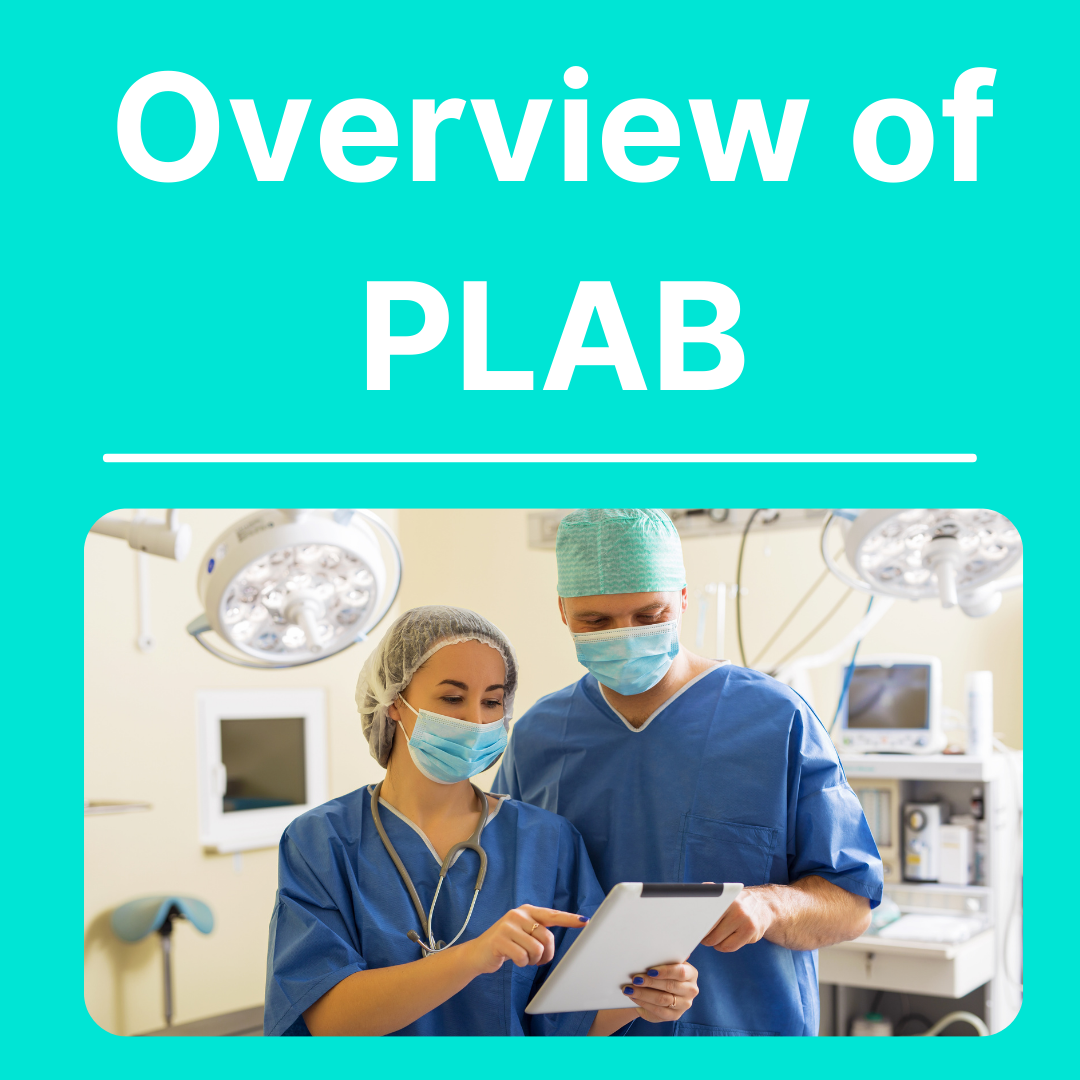
Overview of PLAB
In our previous blogs we covered the different routes in which you need to take to satisfy the GMC language requirements. Next, you need to evidence your clinical knowledge.
The two most common routes for an international Doctor to show this are:
-
Take tests PLAB 1 and PLAB 2
- Present an acceptable post-graduate qualification to the GMC
In this particular blog we will give an overview of the PLAB tests and if they will be the relevant choice for you.
What is PLAB?
The Professional and Linguistic Assessments Board (PLAB) test is there to showcase to the GMC that the doctor who qualified abroad, has the right knowledge and skillset to practise medicine in the UK.
Am I required to take the PLAB test?
The GMC states that if you have graduated from a medical school in the UK or hold an approved European postgraduate qualification, then you do not need to take the test and will be eligible for GMC registration.
List of approved qualifications can be found here.
However, if you do not hold any of the relevant qualifications then one route you can take is the PLAB test (PLAB 1 and PLAB 2). Through doing these tests you are proving that you can practise to the equivalent of a doctor starting the second year of their Foundation Programme training in the UK.
What does the PLAB test involve?
There are two parts to the test – Part 1 and Part 2.
Part 1
Part 1 is a written multiple-choice exam with 180 single best answer questions, which must be completed within three hours.
A short scenario is provided for each section of the test, which is followed by a question. This is then where you must choose the correct answer out of the five answers provided.
The exam tests your ability to apply your knowledge for the care of patients – covering common, acute, long-term or important conditions. As well as relating to current best practice in the UK and equipment routinely used in UK hospitals.
Part 2
Part 2 is a practical objective structured clinical exam, referred to as an OSCE.
The exam is made up of 18 scenarios, each lasting eight minutes, with the aim to reflect real-life situations, such as carrying out a mock consultation or practising on an acute ward.
Each scenario you will be marked against three ‘domains’ which are:
1) Data gathering, technical and assessment skills,
2) Clinical management skills and
3) Interpersonal skills – all of which the examiner will test your competency across a number of skill areas.
Results and exam attempts
If you pass PLAB 1 then you can immediately apply to take PLAB 2 using your online GMC account.
You will be able to see dates and details on PLAB 2 test dates once you have received your PLAB 1 results.
However, if you fail PLAB 1 then you can book to take the exam again (making sure you still meet all the requirements) – the maximum amounts of attempts you can retake the exam is four.
If you cannot pass the four attempts then the GMC allows one more final attempt, but you must provide evidence of additional learning over a 12-month period and send an application to them.
You must pass PLAB 2 within three years of passing PLAB 1 – again, you have a maximum of four attempts and if you cannot pass after four attempts then you must retake PLAB 1.
We recommend that you only take the PLAB tests if you are aiming to work in junior roles, as in most circumstances for the senior positions, you would be expected to have a Royal College postgraduate or equivalent qualification.
Our next blog will be going into more detail about post-graduate qualifications, to make this simpler to understand and choose which route you need to take.
Please click here to view the GMC’s full guides on both PLAB tests.



